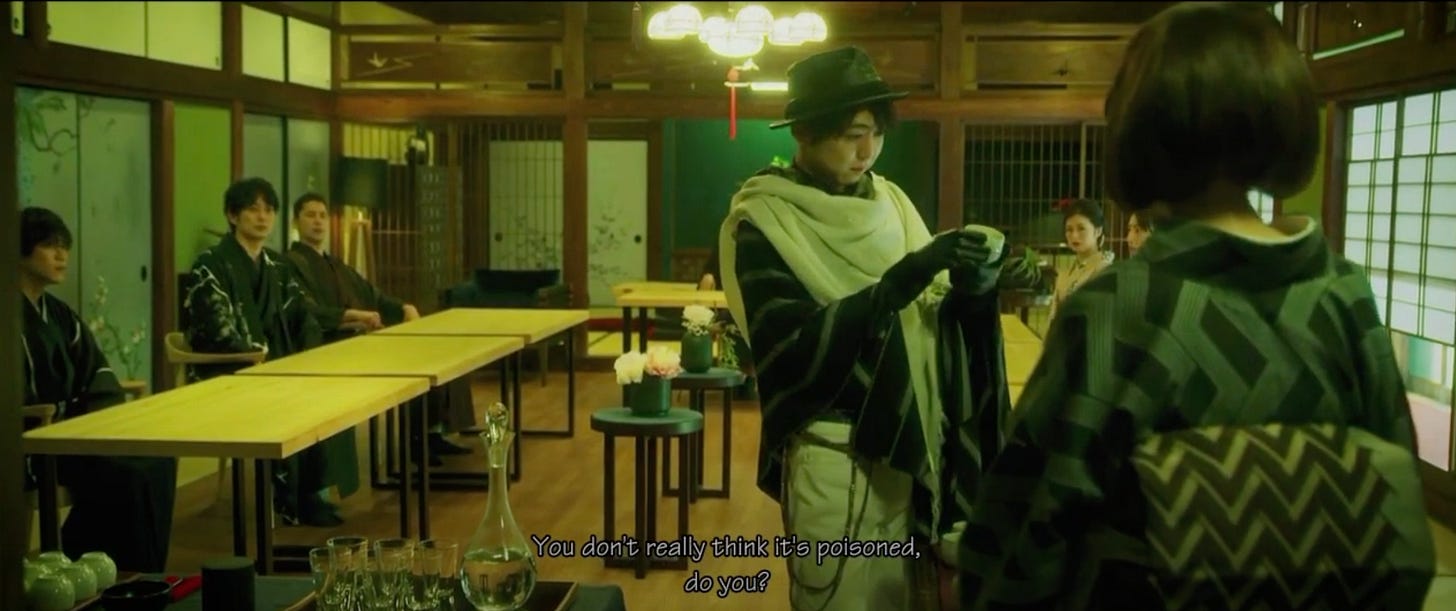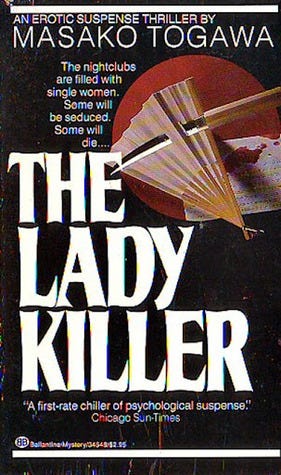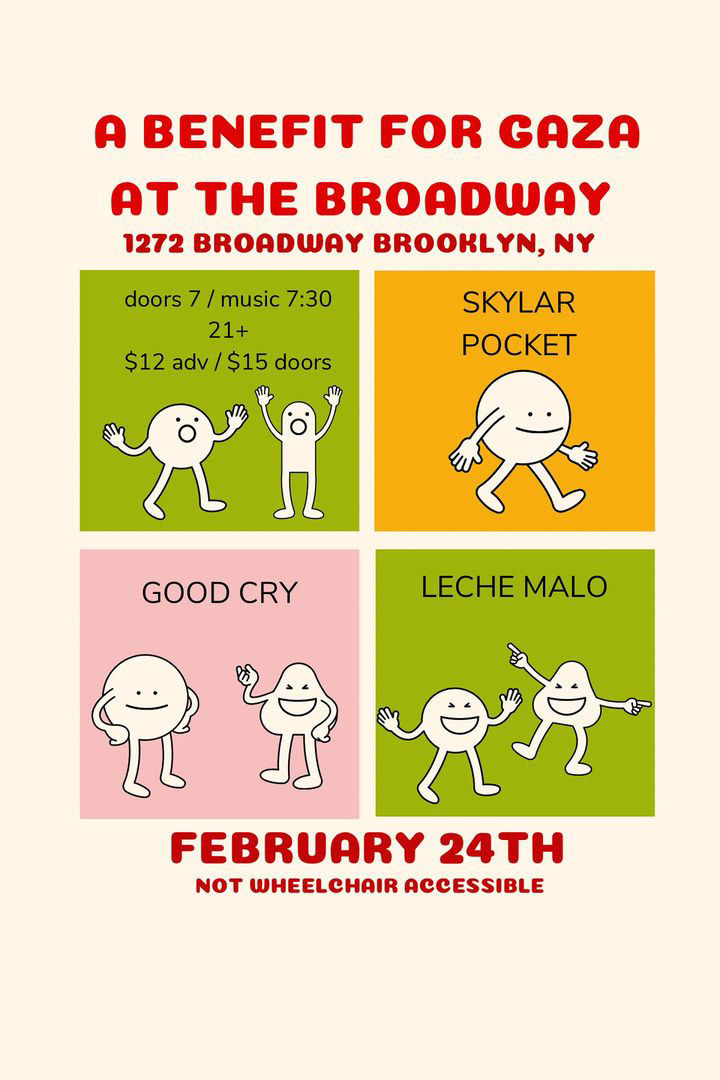The Lady Killer, The Centennial Case, & just, like, some magazines, man
GoodReadsifcation and why you stop reading things you can't track in an app
I think a lot about one conversation I had seven years ago when I was in my late twenties and went to brunch with my late twenties friends I saw all the time, because sometimes you live in New York City walking distance from most of your friends and your life briefly becomes very Friends-y. We were all walking back, probably all going back to our respective homes (which was only two different apartments because we were all roommates), I asked the person closest to me on the sidewalk what she was doing the rest of the day, and she said, because of the weather, probably reading magazines that she hadn’t yet and had been piling up. I have no idea why I found this so chill and aspirational. The answer is obviously capitalism and I’m going to talk about capitalism again.
GoodReads and other social media-adjacent media tracking platforms are a real double-edged sword. On the one hand, it is nice having a log of your experiences and of experiences you’d like to have. Even if you don’t really use the social elements of these platforms, the act of tracking is often pretty subconsciously performative. GoodReads’ annual reading challenges are a good example of this: as innocuous as it seems to set a goal for yourself to read a certain number of books in a given year, think about all the demands that suddenly creates on you:
there is a deadline, thus your time becomes a limited resource
there is public-facing element, thus there is pressure for external validation and to not appear belittled by not meeting your own ambitions
spending scarce reading time (item #1) on something that can’t be logged feels like a waste (fueled by item #2), so you are disincentivized to read things not in GoodReads, such as articles, or even curated collections of articles in – full circle time – magazines
It’s fair to also wonder, Matthew, do you maybe just not like magazines that much? Maybe, but look how easy it is for the attention economy to influence the effort you might even take into finding that out.
And in reflecting on the attention economy, I’m one of many people trapped in the awful cycle of looking at my phone first thing in the morning, not awake enough to do anything requiring more brain power than opening TikTok (fun for a few minutes then nefarious) or Instagram (instantly nefarious, feels like you wake up and opt in to advertising). I’m attempting a small little New Years resolution of, instead of doing that, just keeping a magazine near my bed, within arm’s reach, to read an article before getting up and ready for work instead. I’d been subscribed to Lux for a whole year and haven’t really even cracked a single issue open.
Working through the newest issue one article a day (when I wake up before 9, anyway, a separate issue), reading about tenant organizing against shitty landlords, about the way the internet extracts from expressions of femininity even as it enables eroding femininity as a monolith, about healthcare in prison, and about the loss of Palestinian culture.
I may have to read all of them again to really remember the point since I was half-awake while reading them, but in contrast to half-awake time on TikTok, I feel like there’s at least a Persona social stat–ass sense of value I internalize out of it.
It is not lost on me that this still sounds very self-help-y, very focused on optimization of the self, straddling the line between just doing things that make one happy and fulfilled and the weirdos who write about waking up at 6am and working out and more as an ends to building their own business or whatever. It is hard to extract a genuine desire to discover your best self from the economies that influence what we think that means, a point also, intriguingly, illustrated by Persona.
Crime Time
I was going to write a bit about Monstrilio (Gerardo Sámano Córdova) for this week’s but then I started playing Dirge of Cerberus, nobody’s favorite Final Fantasy VII spinoff, because of some Discord friends getting hype for Final Fantasy VII Rebirth and in response to ThorHighHeels dropping their buckwild (which basically just means personal, which is not actually buckwild and rather respectable actually) top 100 games list, the sole Final Fantasy entry on which was Dirge of Cerberus. And the book and the game are both, uh, monster-centric? What is a monster–centric? Putting this one back in the oven to bake longer and/or literally at all.
So instead this week’s wacky comparison between a book and a game is a much more normal one between two Japanese murder mysteries. At the recommendation of my girlfriend, I recently finished the novel The Lady Killer, a 1963 “erotic suspense thriller” by Masako Togawa, an LGBTQ activist who lived in Japan between 1933 and 2016. My girlfriend and I also started playing The Centennial Case: A Shijima Story, a 2022 detective video game which ThorHighHeels (see, it’s all coming together kind of) described as a "painless" FMV detective puzzle game that was “a smidge noir-y, a tad theater-y” and this felt like possible charming fun. My girlfriend is not a gamer, so I wondered if tis would work as a title that could be played together since the gameplay itself was more so a consequence of thinking through the clues and solving the mysteries; the only gamer really required is for data entry.
The Centennial Case definitely gets off to a slow start with a curious first chapter that goes 100 years in the past, seemingly halting the narrative even though it sort of makes sense why this is relevant, and has the usual issue that these types of games have where you have to parse the logic puzzle the way the game wants you to even when you’ve figured out something a few steps past it. For the latter, I found failure was still fun to a point – the poor actors working on this game must have had to film a scene for every stupid incorrect accusation the player could select, and sometimes you know you fucked up when it’s immediately funny, but that’s kinda chill? And as for the former, my girlfriend described her experience with the first murder in the game as not a bad time, not a great time, but “a medium time”.
And then the story returned to the present day and we met this guy.
Look at this motherfucking dweebus.
He’s wearing a white shawl over… a black shawl? Over a kimono over a shirt, maybe? The longer I stare at this the less certain I am what layers are what. Leather gloves! Wallet chain(s)? That hat, which as an added bonus reflects light like its made of duct tape. He’s like fedora sex club Clint Eastwood. Is he supposed to be cool? Is he supposed to not be but is supposed to think he’s cool? Whatever choices were made here, they don’t work to such an extent that they work as hard as possible. And to top it all off, the character introduces himself using the name of a detective novel series that the main character of the game writes. We know he’s a fraud and/or a weirdo from the second he saunters in (you know he saunters) with his insane fit.
We were screaming with laughter at this character’s every move until (mild early spoiler/premise of chapter 2), he’s the second murder we investigate. RIP goofus. The real mystery was why you were dressed like that.
Wow I got sidetracked and I was supposed to tie this together with some point about The Lady Killer, wasn’t I?
There really isn’t much of one to make, frankly, beyond the observation that the mystery in a book will be solved whether you crack the case or not and whether you even understand it or not, and what makes the book mystery satisfying is how the clues and the reveal(s) are paced out. The video game, however, is burdened with player agency, with determining to what degree you’re not allowed to make it to the reveal if you can’t figure it out.
My girlfriend thought The Lady Killer was great and I agreed – it’s a wildly ahead of its time mystery about a womanizer cheating on his wife framed for the murders of the women he most recently slept with. His situation prompts sympathy – the reader knows the whole time he’s innocent – although his moral character is anything but innocent. The Centennial Case is, well, it’s not trying to be great. The story, thus far, is pretty much just there, up until the wild superfan/impersonator/no idea what his deal is and then he’s murdered guy – which is just a whole other flavor of ride that honestly dramatically ramped up our enjoyment of the game.
In theory, the reader/player agency afforded by the medium is what could give The Centennial Case the boost on the shortcomings of its story, but it turns out neither my girlfriend nor I feel a strong desire to become detectives. She doesn’t feel the need to solve a mystery before the story reveals it to her. I enjoy when I do manage to do it, but it’s more so a bonus for me than The Point of these types of stories. Instead, The Centennial Case, at this point, gets its boost from a much more medium-agnostic twist: a wacky-ass character shows up. It’s a very different thing to chew on than a “bad guy but not murder bad, will they figure out what happened? will they exonerate him? and this was written when?” story, but we’re not gatekeeping chewing over here. Ya gotta eat.
Standard Plugs Zone
If you’re in New York City, my band’s second show has an official date! We’re opening a Gaza. [update: what a typo lol] All proceeds go to the Palestinian Youth Movement — a transnational grassroots and independent movement of Palestinian and Arab youth struggling toward the liberation of Palestine. Tickets don’t go on sale until the 14th; follow the band on Instagram to get the link when it drops!











